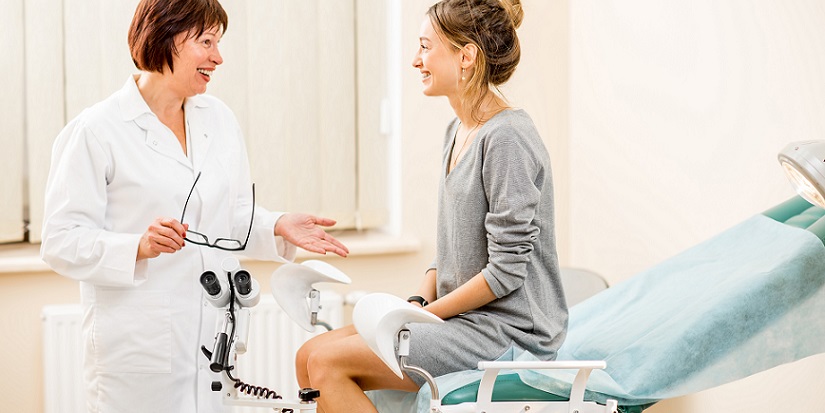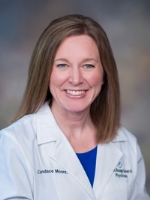When Should My Daughter Start Seeing a Gynecologist?
- Category: Baby, Kids' Tips, Women's Health
- Posted On:
- Written By: Dr. Candee Moore, OB/GYN

If your teenage daughter has period issues, has been sexually active, or is experiencing an acute issue like a yeast infection, she should definitely see a gynecologist. But outside of these specific situations, when is the “right” time for your daughter to start this new patient-provider relationship?
The American College of Obstetricians and Gynecologists (ACOG) recommends that a good time to establish care with a gynecologist is between ages 13-15. In the U.S., 12.5 years old is the average age of first menstruation, so this age range covers a time when there’s a lot of change for tweens and teens’ bodies. (These changes should also be covered by your child’s pediatrician, but a gynecologist can answer any further questions or concerns.) Every girl is different, but keep in mind that if your daughter is 15 years old and still hasn’t gotten her period, but has had breast and pubic hair development, you should consult with a gynecologist.
So what can your daughter expect at a first visit? The gynecologist will likely discuss a range of topics like puberty, periods, proper hygiene, sexually transmitted infections, and prevention of pregnancy. The doctor will also dive into her general health with a physical exam, height/weight, blood pressure, activity levels, and emotional health. Conversations about human papillomavirus (HPV) and the available vaccine will be covered too. The target age for girls to receive the vaccine is age 11-13.
Contrary to what you may have thought, the first visit usually does not include an internal pelvic exam, unless there is a specific complaint or issue that needs to be checked out. If a pelvic exam is indicated, a caregiver is always present for younger kids, and many gynecologists will leave it up to a teenager if she wants a caregiver present or not. Then starting at age 21, a PAP smear is recommended as a safe, effective way to screen for cervical cancer.
As teenagers may start to explore their sexuality, seeing a gynecologist is a great tool. If on the older side, the gynecologist will likely talk with your child alone for confidentiality, to build trust and to help her feel open with sensitive topics or issues. By encouraging them to open up to their parents, too, the gynecologist and caregivers can work together closely to provide appropriate information and guidance.
After that first visit, the plan moving forward depends on the teen – the gynecologist will discuss next steps with you before you head out.

